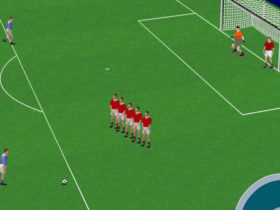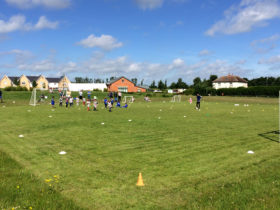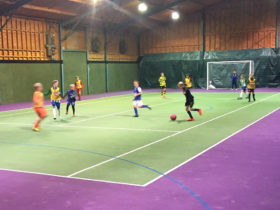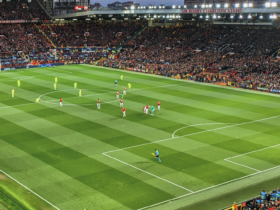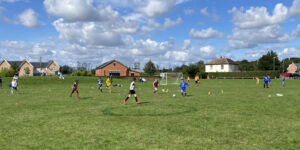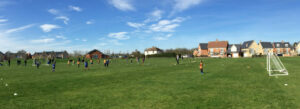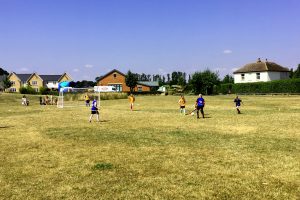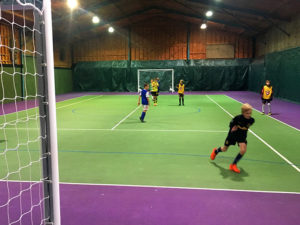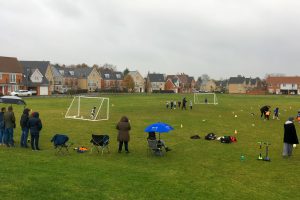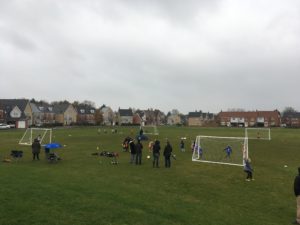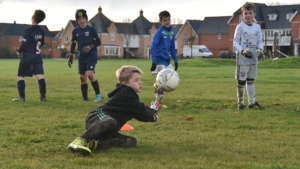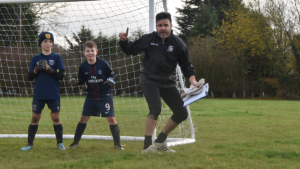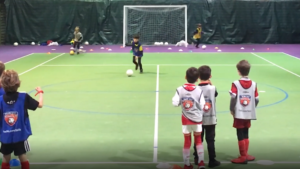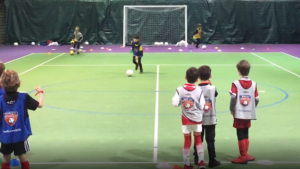By Jamie Bradbury in Jerusalem

Roy Hodgson and David Bernstein were given a poignant insight into the Holocaust during an emotional visit to Yad Vashem, the World Centre of Holocaust Research in Jerusalem.
Last summer, while in Poland for Euro 2012, Hodgson and Bernstein took some members of the Three Lions senior squad to Auschwitz-Birkenau, one of the many concentration camps operated by the Nazis during World War II.The England Manager and FA Chairman were in Israel to watch the Under-21s in their final game at the UEFA European Championship.
Yad Vashem, which opened in 1957, is a living memorial to the atrocities that saw six million Jews murdered by Nazi Germany.
The Holocaust History Museum at Yad Vashem tells many of the personal stories of the people who lost their lives, and those who were affected, while also honouring the 25,000 heroes who helped Jews during the war, even at the risk of their own lives, and their families’.
Hodgson and Bernstein were also joined by an FA delegation including General Secretary Alex Horne.
Soon after walking inside the museum and weaving through its underground galleries, the group were shown a picture of a Lithuanian football team, which was taken from the body of one Holocaust victim shortly after he was killed.
Among the thousands of similar artefacts and personal possessions on display, they saw a book written by one of the Chairman’s relatives, Jakob-Wasserman, on a pile depicting the burning of Jewish literature.
“This is my third time here but it doesn’t in any way dull the impact of this place, the extraordinary record of this extraordinary catastrophe that happened before and during the Second World War.” said Bernstein.
“It records the rise of Naziism in Germany, what happened, how it happened, how it developed, how the policy was setup by the Nazi regime.
“It’s important that it’s not forgotten and that history must never be allowed to repeat itself.”
Hodgson added: “There are lots of testimonies, lots of videos, incredible pictures, very harrowing pictures and videos towards the end.
“The big question you always ask yourself is how so many people could have allowed it to happen?
“This must be an incredible burden on the Jewish people to know this has happened.”
Horrifying stories of the ghettos, where Jews were sent to live together as they awaited their fate, were clearly upsetting. The journeys from the ghettos to many death camps, such as Treblinka in Czechoslovakia, were incomprehensible.
During a 13 month period from July 1942, over 870,000 Jews were murdered at Treblinka alone. 5,000 people were transported by train every day, told to undress on their arrival and sent to what they thought were showers, but were in reality gas chambers.
 One sign highlighted the horror. It read: “The camp’s law is that those going to their death should be deceived until the end.”
One sign highlighted the horror. It read: “The camp’s law is that those going to their death should be deceived until the end.”
The Hall of Names, near the conclusion of the tour, is dedicated to research and documenting the names of every person who died in the Holocaust. There are 4.2m testimonies recorded so far, as work continues.
The final part of the visit was the Children’s Memorial, which remembers the 1.5m Jewish children who were also murdered by the Nazis.
The dark, mirrored cavern gives the illusion of thousands of candles lit up around the room like stars, while voices call out the names of each child one by one. A deeply moving memorial, and a chilling reminder of what happened to innocent young people across Europe during Nazi occupation.
“The documentation of everything that happened, from the start of the war to the final solution, is brought home so vividly, to some extent even more so than Auschwitz,” said Hodgson.
“It’s very, very sobering and gives you a lot to think about. It’s been a very poignant experience.”
Meanwhile, the Chairman added: “I’m extremely happy that football and The Football Association have done so much to educate people about the Holocaust.
“It fits in with our wider programme of anti-discrimination and respect. I’m very proud that we’ve been here today.”



